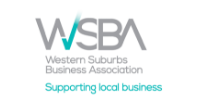It is common for businesses to make GST errors in their BAS. The majority of these mistakes are unintentional.
The ATO recently reviewed all of the BAS adjustments made as a result of auditing and revealed that over 80% were the result of inadvertent GST mistakes.
Examples of common mistakes include: clerical errors such as duplications or accidental omissions, sales being incorrectly recorded as GST free, or accidentally recording a GST-free sale as taxable.
Getting your BAS right the first time around can save your business time and money, and ensure that you receive your refund as soon as possible.
Regular and meticulous bookkeeping can make a significant difference to the accuracy of your BAS. It is also important to retain any relevant documentation including tax invoices for purchases that included GST and all electronic records.
The ATO has indicated that it will be lenient towards businesses with mistakes in the BAS unless there is an indication that the business has been reckless in their record keeping, or have deliberately provided misleading information.
If you have made any errors on your BAS then you have the option of simply correcting them on your next BAS yourself. This will not subject you to any liabilities or general interest, and is generally much simpler than redoing the past BAS. However, this is not possible if your error is outside the correction limits.
Business categories that have been identified as being at high risk of GST errors include construction, professional services, wholesale trade, retail and logistics.
If you require any assistance completing your BAS’ please do not hesitate to contact our office.
In some instances where the ATO has queries on lodged BAS’, fees can be covered under some tax audit insurance policies. Should you also wish to take out tax audit insurance, should you not have already done so, please contact Helen Bunford of our office on 9387 5637.
Please Note: Many of the comments in this article are general in nature and anyone intending to apply the information to practical circumstances should seek professional advice to independently verify their interpretation and the information’s applicability to their particular circumstances.







